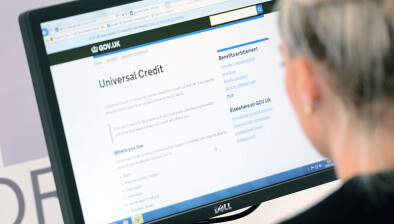CAS warns UN on ‘digital divide’ in Universal Credit
As many as one in three people seeking help with Universal Credit don’t have access to the internet to make their claim, according to new figures from Citizens Advice Scotland (CAS).

CAS has submitted evidence to Philip Alston, the UN Special Rapporteur on Extreme Poverty and Human Rights, on the introduction of digital technologies to social protection systems.
As part of the submission the charity has produced new analysis from its client database which shows that, in April 2019, 34 per cent of Scots seeking CAB help with Universal Credit did so because they could not access the internet.
CAS has also submitted to the UN its latest ‘Voice from the frontline’ briefing, which presents a number of anonymous case studies, including:
- A client suffering from chronic anxiety and depression who has been repeatedly sanctioned for not updating his online journal correctly. He has no computer skills or access to the Internet at home. He has no money at all and he is reliant on Crisis Grants and food parcels.
- A distressed client who has worked manual jobs his entire life and so does not know how to turn on a computer, let alone how to log on to and update his journal.
- A housebound man who has been signed off work for a minimum of 13 weeks following knee surgery, who is without access to a computer and is struggling to afford regular mobile data top-ups.
Publishing the information, Citizens Advice Scotland policy officer, Eilidh McIvor, said: “The Scottish Citizens Advice network helps hundreds of thousands of people each year and this most recent data shows that one in three people seeking our support with Universal Credit are having problems with the fundamental issue of internet access.
“We think the UK government should ensure there are suitably supported offline options to help people make and maintain their claims, such as over the phone or face-to-face support, as well as home visits.
“These options should be available to all claimants, but should be specifically targeted to people with health conditions, disabilities or other complex needs. People who are vulnerable should not be penalised for having no internet access.
“Citizens Advice Scotland also believe there should be a fundamental review of the purpose and efficacy of the sanctions regime and the impact it has on people and services.”






